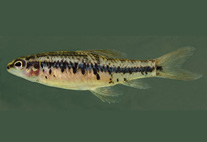Abstract
The endemic Cyprus Scops Owl Otus (scops) cyprius has been treated as a subspecies of the widespread Eurasian Scops Owl O. scops since at least the 1940s. However, its song is distinct from that of all other subspecies of O. scops in being double-noted, rather than single-noted. Its plumage also differs, most obviously in being consistently darker than other subspecies and in lacking a rufous morph. However, it shows no biometric differences from O. s. cycladum and southern populations of O. s. scops. It is also unusual among scops (s. l.) populations in being at least partially resident, although two specimens showing characters of this taxon were collected in Israel in early spring, and the numbers of birds that are resident on Cyprus appear to vary, with few recent winter records. It differs from O. s. scops by one synapomorphic nucleotide exchange in the analysed mitochondrial marker, indicating a recent separation. Given that large numbers of O. s. scops and O. s. cycladum pass through Cyprus on spring migration, and that the latter breeds in adjacent countries, it seems probable that cycladum would colonize the island, but for the presence of cyprius. That it does not do so, and that cyprius retains its distinctive song and plumage, suggests that isolating mechanisms exist. We recommend that cyprius be considered specifically distinct, as are other distinctively voiced insular Otus populations.

